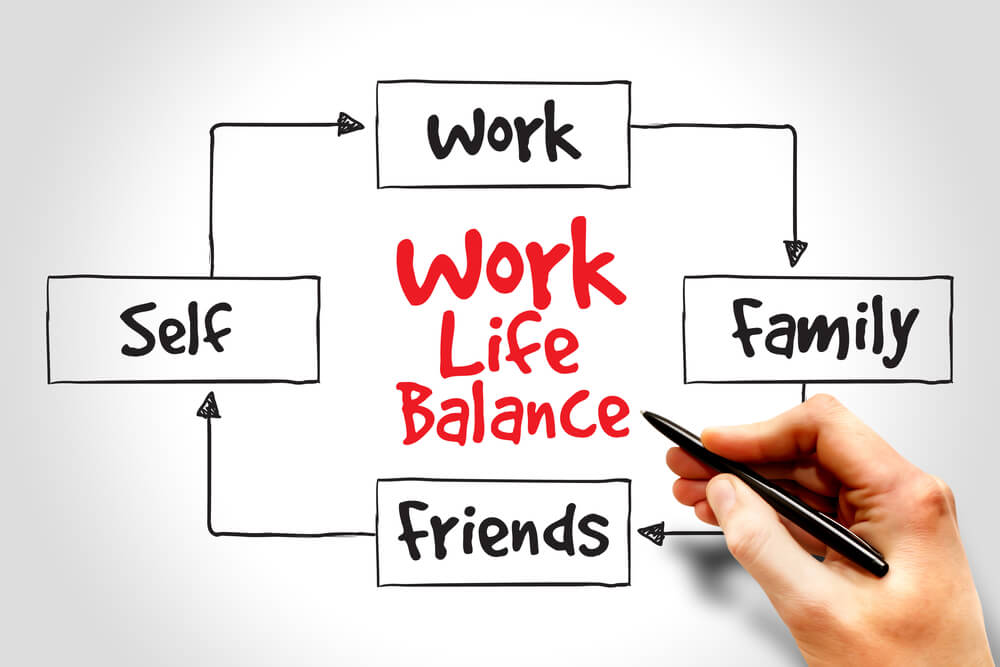We hear it constantly. We are presented with statistics that show how Americans are working longer hours than ever before. The 40-hour work week has turned into the 45-hour work week or the 50-hour work week and in some cases, even more.

A recent poll conducted by NPR, the Robert Wood Johnson Foundation and the Harvard T.H. Chan School of Public Health shows that less than half of all employees (polled) used all or most of their paid vacation days within the past year.
There is no specific time that “work” ends and “life” begins. With employees making themselves accessible by email, text, or phone 24/7, it’s extremely easy to lose sight of that balance.
Each person has his or her own idea of work/life balance. Recently, the term “work/life integration” has become increasingly widespread; especially with employees in the Millennial generation. This concept of “integration” rather than “balance” is essentially the same idea, but with a few variations. “Balance” suggests that these two worlds, work and life, must compete with one another, while “integration” suggests that they can work harmoniously with one another.
Jae Ellard, author, expert, and speaker on developing the skill of awareness in the workplace sums it up like this; she says, “Most people share a similar desire, which is to create easy joy and meaningful engagement between the interconnected roles, relationships, and responsibilities that make up life.”
I think most people can agree with that wholeheartedly.
3 Simple Tips
1) Let Go of Perfection
“Healthy striving is self-focused: “How can I improve?” Perfectionism is other-focused: “What will they think?” – Brené Brown
Nobody expects you to be perfect, except maybe you. The sooner you let go of the idea of “perfection”, the sooner you will realize that perfection is only a flawed picture in your head of what you think everyone expects you to be. Focus on your own ideas of personal growth.
2) Protect Your “You Time”
“If you have no time to rest, it’s exactly the right time.” – Mark Twain
Personal time is extremely important for a healthy balance. Aim to set time aside each day by doing something for you, whether it’s for 10 minutes or for an hour. “You time” can be anything YOU want to do! Pick something that truly calms your mind. It could be anything from exercising to sitting down and watching your favorite TV show. After all, this is YOUR time!
3) Learn to Work Smarter
“Work smart. Get things done. No nonsense. Move fast.” – Susan Wojcicki
Prioritization and knowing where and when to focus your attention is a skill worth mastering. Always have a plan before jumping in. It may even help to do this the night before, if possible. Know what needs to be accomplished and aim to stick to that plan, while also allowing room for interruptions throughout the day.
Don’t overwhelm yourself. If you are continuously not accomplishing what you need to, then it may be time to re-evaluate your workload.
Learn to evaluate processes already in place. Don’t look for places to cut corners. Instead, look for steps in the process that may not be necessary to complete the same high quality work. It’s easy to get into the daily habit of following processes, when there may in fact be an easier way.
Everyone deserves a healthy work/life balance. It might require you to make some changes in your life. Don’t be afraid to take that next step towards happiness.

 Follow
Follow